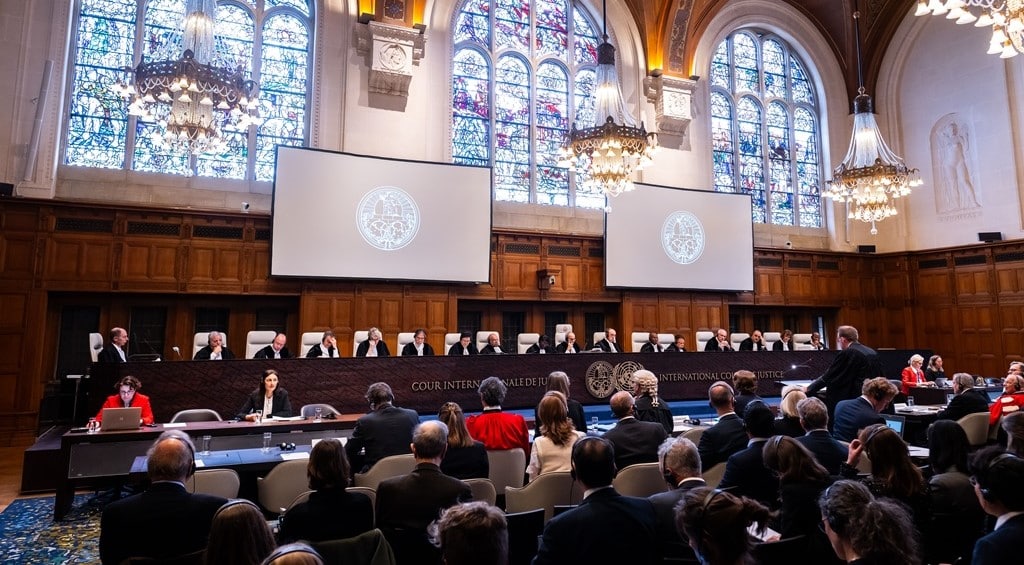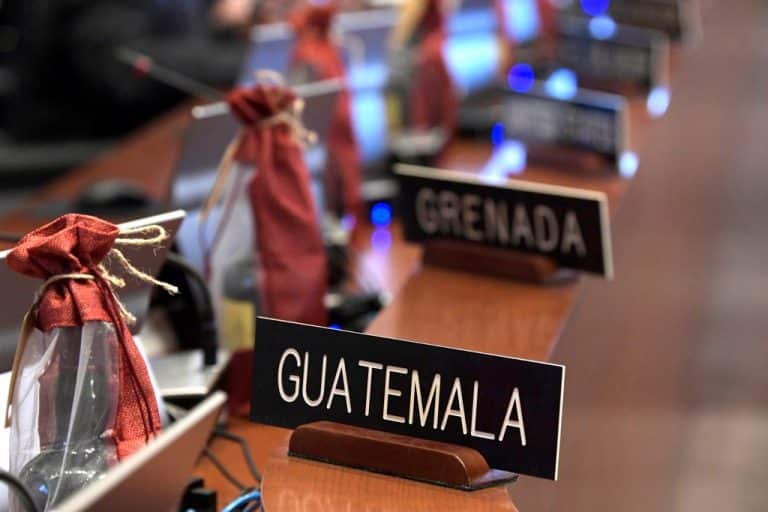15 de diciembre 2023

ICJ Rules Against Nicaragua's Request For Germany to Halt Arms Sales to Israel

PUBLICIDAD 1M
PUBLICIDAD 4D
PUBLICIDAD 5D
Those who are currently destabilizing Guatemala have no capacity to form a government. And they are well aware of it

Imagen de una placa de Guatemala durante una sesión ordinaria del Consejo Permanente de la OEA. Foto: EFE/Lenin Nolly
In the current debate regarding the deterioration of democracy and its detours and cracks, people often employ terms like “self-coup,” “legal coup,” “parliamentary authoritarianism,” “hyper- presidentialism,” or its opposite “hypo-presidentialism,” among other notions that attempt to comprehend and order this reality.
I want to suggest a metaphor today, to describe a new type of institutional rupture: the coup d’etat of impotency. That was the case of the coup perpetrated by Pedro Castillo in Peru in December 2022. On that December 7th, in a totally irrational manner that went counter to his own survival as a politician, Castillo ordered the dissolution of Congress and installed a State of Exception.
It lasted only a couple of hours, since his measure had no popular support, nor support from the armed forces, the information outlets, the courts or his own ministers. In fact, within minutes half his cabinet resigned; Congress left its doors open so the legislators could enter; the Judicial Branch denounced his action, and Castillo himself was arrested. It was a coup, but of impotency.
Peru mirrors current events in Guatemala, where for months the Attorney General’s Office has been carrying out a campaign to interfere with the electoral process, hinder the transition of power, and block Bernardo Arevalo [president-elect by vote of a large majority] from becoming President. There’s no other way to explain the permanent uncertainty into which they’ve sunk the entire country and all of Central America.
Guatemala is the largest and most populated country on the isthmus. It borders Mexico, and migrants must cross through it. It also serves as a distribution channel for organized crime. The multiple threats that such uncertainty implies for the entire region’s stability and security can hardly be exaggerated, except by those who, paradoxically, have as their mission the defense of the country’s stable institutions and security – the Attorney General’s Office itself.
They’re playing a different game. Every week they launch another informational bombshell, intensifying their strategy to delegitimize the elections. Most recently, it involved a press conference in which they made explicit their objective of invalidating the electoral results, based on the supposed “falsified signatures” used to register the winning party, and in “irregularities” and “inconsistencies” in some of the polling place results.
The now-famous Guatemalan prosecutor Curruchiche declared that, given these facts, the election should be declared annulled. He underlined “should,” because in fact it can’t be annulled, something the prosecutor himself knows. Hence, the use of the conditional tense of the verb.
In reality, not even the Constitutional Court of Guatemala can annul an election, since the country’s Carta Magna stipulates that any questioning of the results must be formulated before October 31st. The Supreme Electoral Tribunal once again ratified its ruling on the legitimacy of the correctly certified election results. It should be noted, however, that four of the five permanent members of that tribunal are currently in exile, due to the persecution of the Attorney General’s Office.
The OAS headed up the international reaction by denouncing the Attorney General’s Office for attempting a coup d’etat. But it really isn’t that either, because a coup d’etat supposes the replacement of a legal government by an alternative one – a de facto and illegitimate government, but a government at least. Those working to destabilize Guatemala have no capacity to form a government. And they know it.
As with the Attorney General’s use of “should,” it’s all conditional, pure uncertainty. In any case, “it would be” the coup of impotency, of the destruction of power and the emptying of the institutions. Perhaps to assure that the President comes to power weak, cornered from the first moment, by a legal corporation that represents a conglomerate of opaque interests.
Definitively, it would be a coup so that no government whatsoever can exist, which is worse than a de facto government; so that there be neither law nor order; so the proto-governments could compete with the State for territorial control, the means of coercion, the routes and the markets. We already know who we’re dealing with in our abducted Latin America of today.
*Article originally published in Infobae.
This article was published in Spanish in Confidencial and translated by Havana Times. To get the most relevant news from our English coverage delivered straight to your inbox, subscribe to The Dispatch.
PUBLICIDAD 3M
Académico argentino. Actualmente es profesor en el Centro de Estudios Latinoamericanos en la Universidad de Georgetown. Es autor de varios libros y articulista de opinión en diferentes medios.
PUBLICIDAD 3D